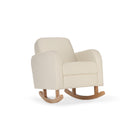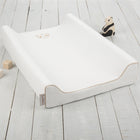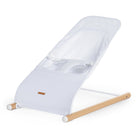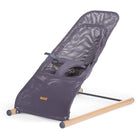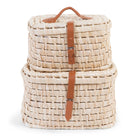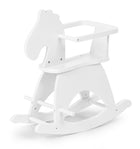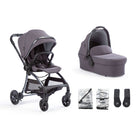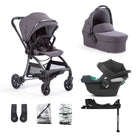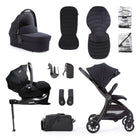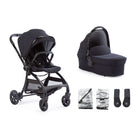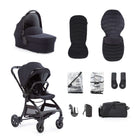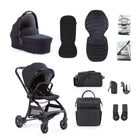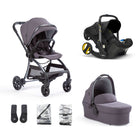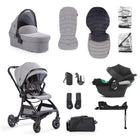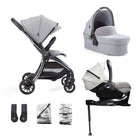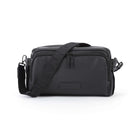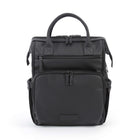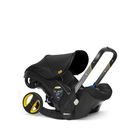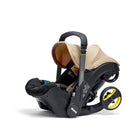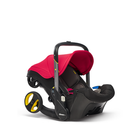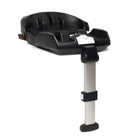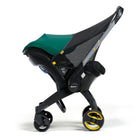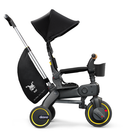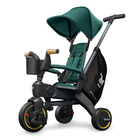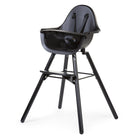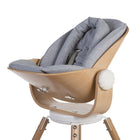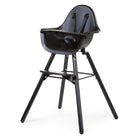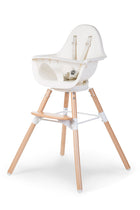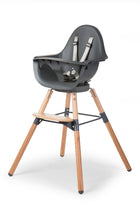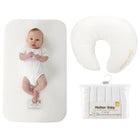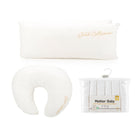One last getaway for you and you’re partner before your little one arrives may be at the top of your to-do list. Over the years, the babymoon trend has exploded with the help of celebrities leading the way, such as Love Island stars Olivia and Alex Bowen. Who posted snaps of their babymoon in Tenerife. Before the arrival of their baby boy, Abel, in June.

Travel companies like Jet2holidays and First Choice even have pages on their site dedicated to babymoon destinations. But before you book your last hurrah. You should research and speak to your doctor or midwife about flying when pregnant. So you can plan ahead to ensure your babymoon is as relaxing as possible.
When to Travel During Pregnancy
Every pregnancy is different, and what you experience during a certain stage of pregnancy may be the complete opposite of what your friend does. However, the first 12 weeks, also known as the first trimester, can be particularly tiring. In early pregnancy, you may experience morning sickness and nausea. Therefore, you may want to avoid taking a trip away during this time. Plus, the risk of miscarriage is higher in the first 3 months, whether you’re travelling or not.
Another period you should avoid flying is during the final months of your pregnancy. It’s common to feel more and more uncomfortable the closer to the due date you get. You may struggle to sleep with your bump or experience leg cramps when trying to drift off to sleep.
For many pregnant women, the best time to travel and take that pre-baby holiday is in the second trimester, which is between 4 and 6 months.

Weeks of Pregnancy
After 28 weeks, your airline may request a letter from your doctor or midwife. That confirms your due date and that you’re not at risk of any complications.
It is important to consider that some airlines may not let you fly towards the end of your pregnancy. One reason is that the chance of going into labour is naturally higher after 37 weeks or around 32 weeks if you’re expecting twins. According to the NHS Start4Life website, at 37 weeks, your baby could make an appearance at any time, and this would not be considered early.
Travel Insurance
When shopping for travel insurance before you jet off, it’s important to bear in mind every eventuality. You should make sure you’re covered for all circumstances, such as an early birth, medical care during labour and the cost of changing your return trip if you do go into labour.
Plan Ahead
As we mentioned at the start, planning is the key to a stress-free babymoon. Once you’ve decided on the destination you’d like to visit. Make sure you research before booking your flights to ensure there are healthcare facilities nearby, should you need them.
It’s also a good idea to take a copy of your maternity notes/medical records in your hand luggage. Along with any medication you require while away. Another thing you may find useful is speaking to your midwife or doctor about any concerns you have before setting off for your trip, especially if you’re travelling later in your pregnancy.

Long-distance Travel
For most pregnant women, spending longer than 4 hours on a plane is their worst nightmare. However, if you’re thinking about taking a long-haul flight, you should be aware that it carries a small risk of blood clots – Deep Vein Thrombosis (DVT). To reduce the risk of this happening, you may want to wear compression stockings.
You should also drink plenty of water to avoid dehydration and try to reserve an aisle seat or one with extra leg room.
Remember to get out of your seat and move around regularly. You should aim to do this every 30 minutes or so.
Destination
Choosing the right destination for your babymoon can be a difficult task. But there are a few factors you should take into consideration:
- Will you need any travel vaccinations? (Ask your Midwife or GP about travel vaccinations).
- What will the weather be like?
- How long is the flight?
Tips for When You Get There
- Drink bottled water if unsure whether the tap water is safe to drink.
- Be careful when eating and drinking to avoid water-borne conditions, for example an upset stomach and travellers’ diarrhoea – keep this in mind when washing fruit and veg.
- Pack suitable clothes and shoes that you’ll be comfortable in. Remember, your feet may swell in warm temperatures.
- Be mindful when planning activities, and don’t push yourself too hard. A babymoon is supposed to be relaxing.
- If you’re going to a sunny destination, be sure to pack a higher SPF, as your skin is more sensitive when pregnant.
- Make sure you don’t lift any heavy suitcases or bags.












